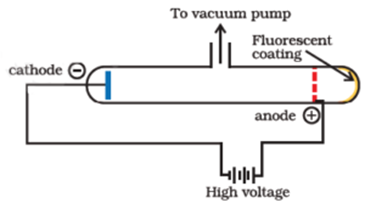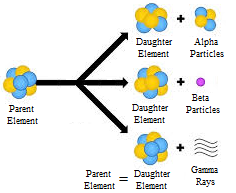Science > Physics > Nuclear Physics > Nuclear Structure In this article, we shall discuss the composition of nucleus and concept of nuclear radius, nuclear vlume, and nuclear density. Geiger Marsden Experiment: A narrow beam of alpha particles from the radioactive source was incident on a thin gold foil. The scattering of alpha particles takes […]
Categories
Nuclear Structure
- Post author By Hemant More
- Post date May 4, 2020
- No Comments on Nuclear Structure

- Tags Alpha decay, Alpha particles, Beta decay, Beta particles, Constituents of nucleus, Gamma decay, gamma radiations, gamma rays, Natural radioactivity, Nuclear structure, Proton electron hypothesis, Proton neutron hypothesis, Radioactive decay, Radioactivity, Rutherford's experiment, Rutherford's model of an atom, Size of nucleus


